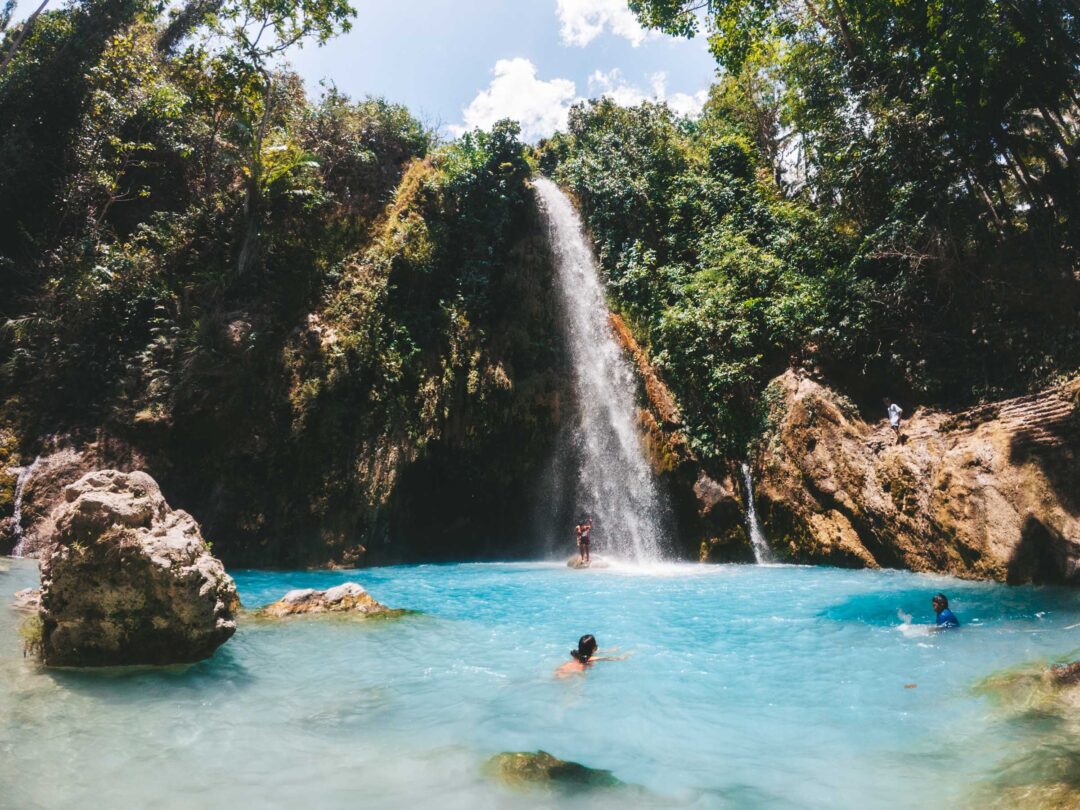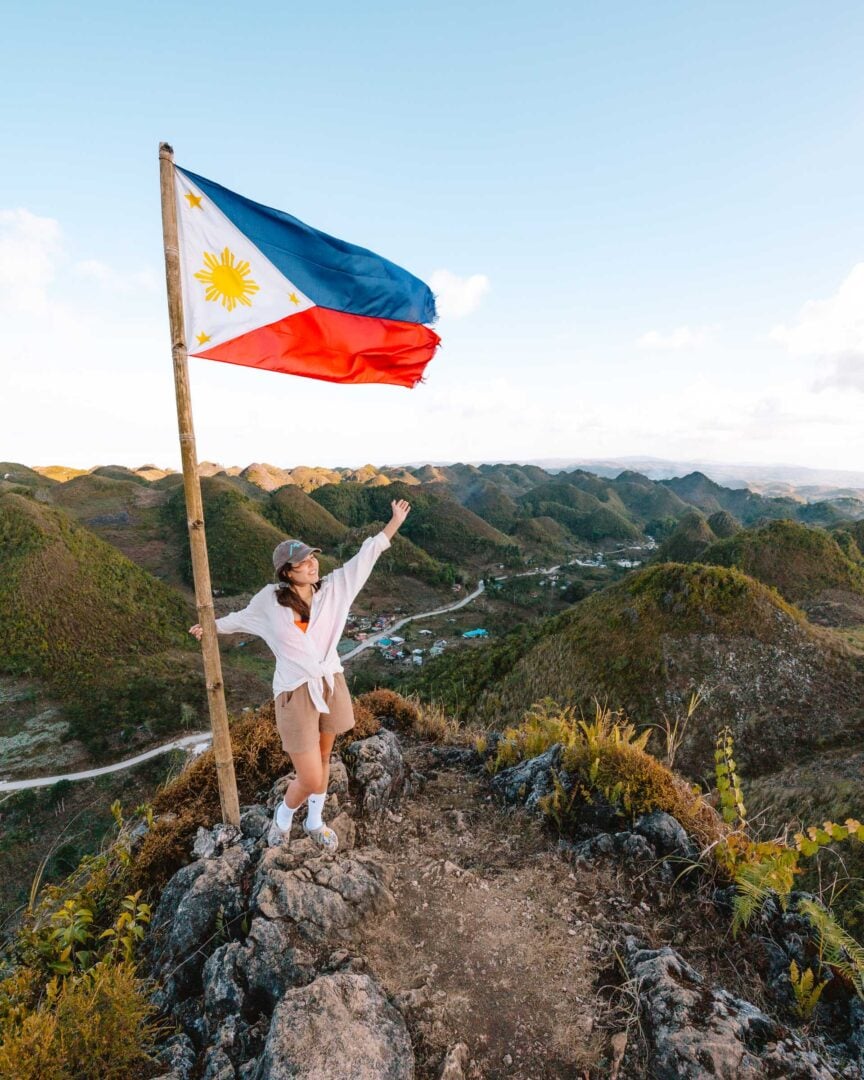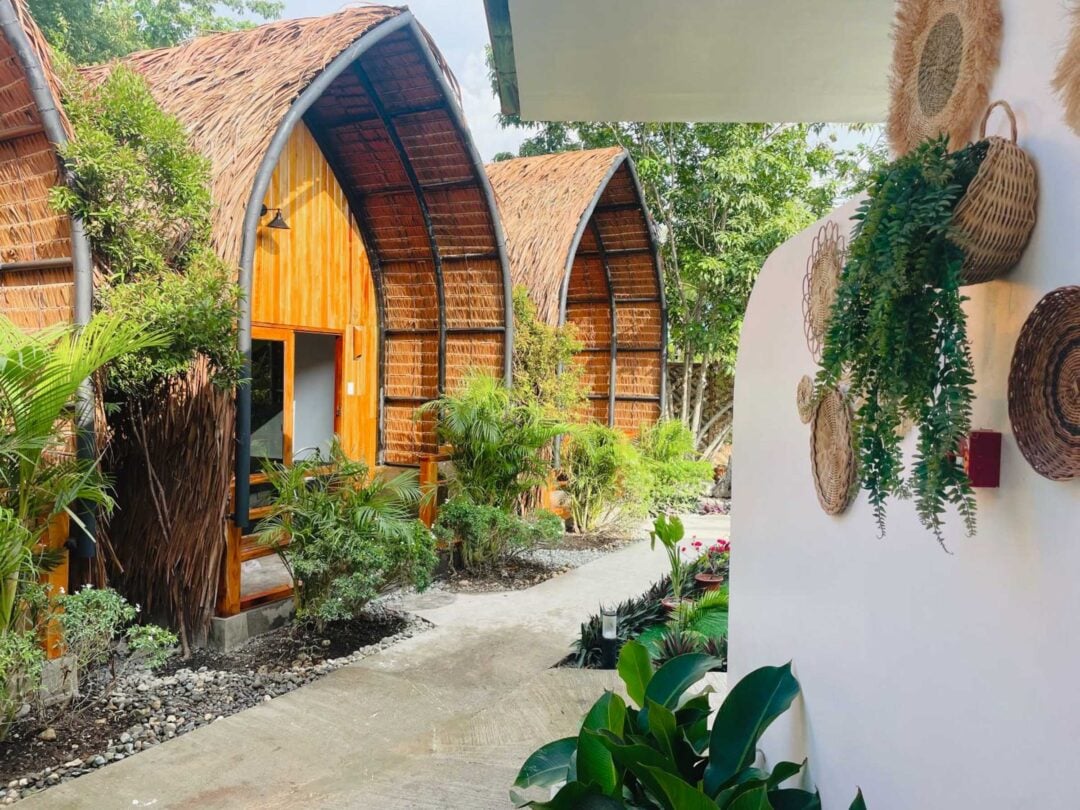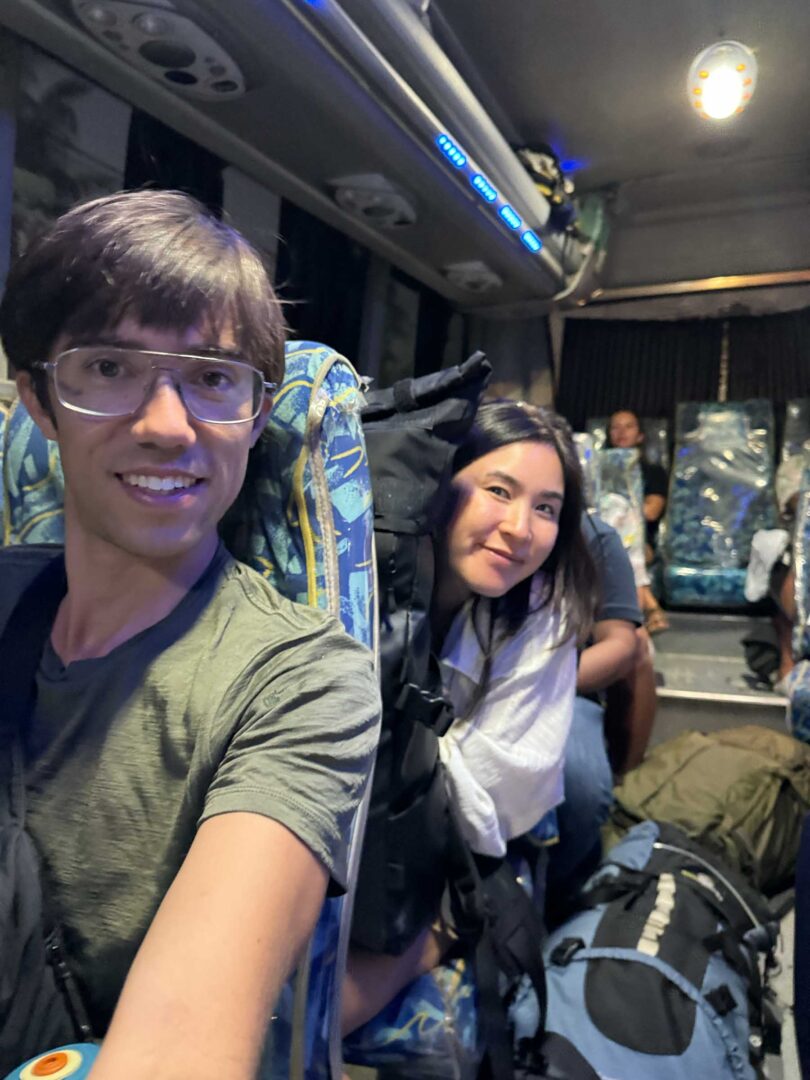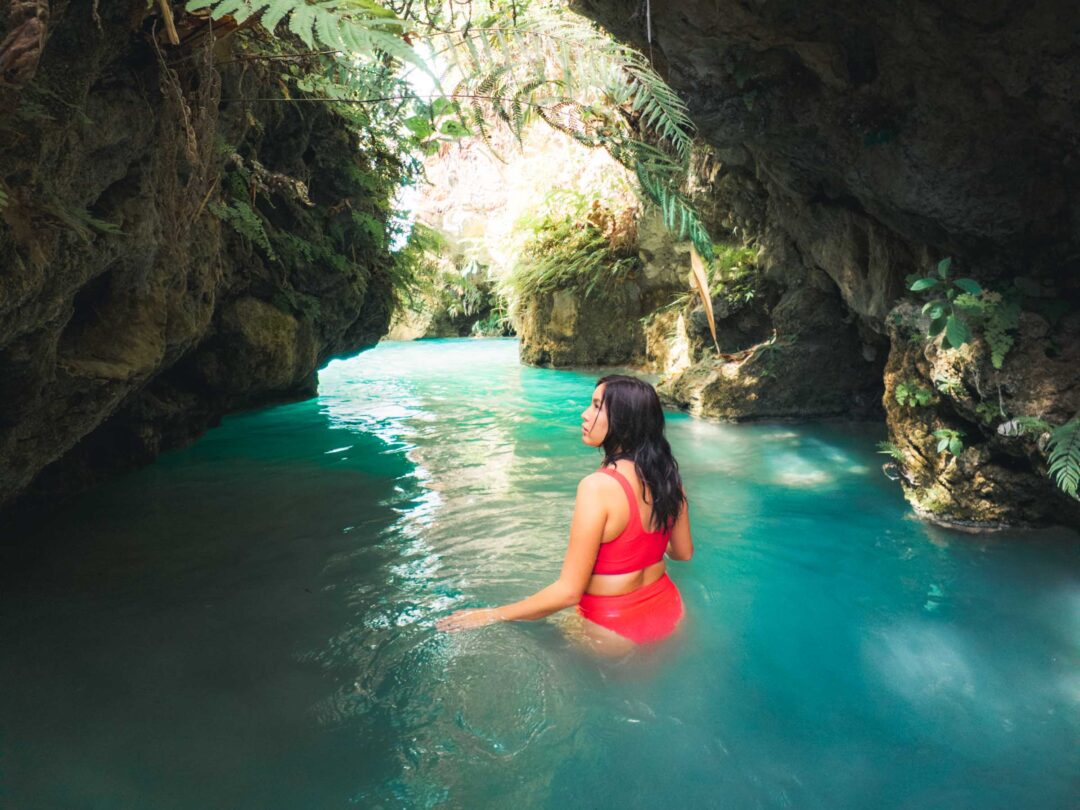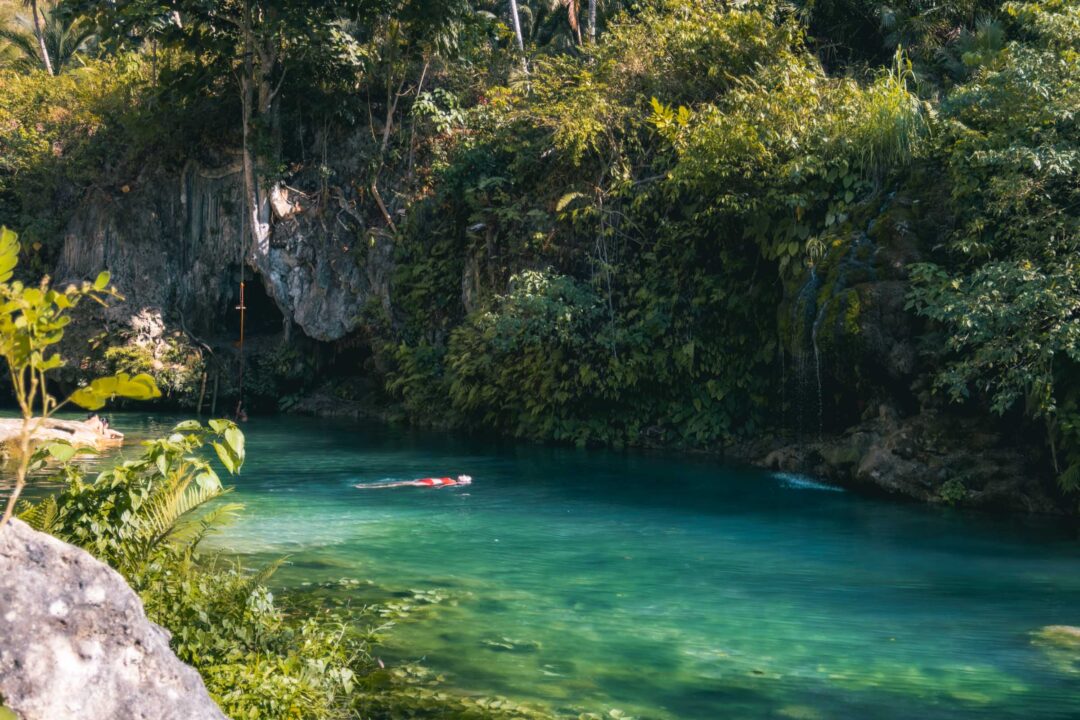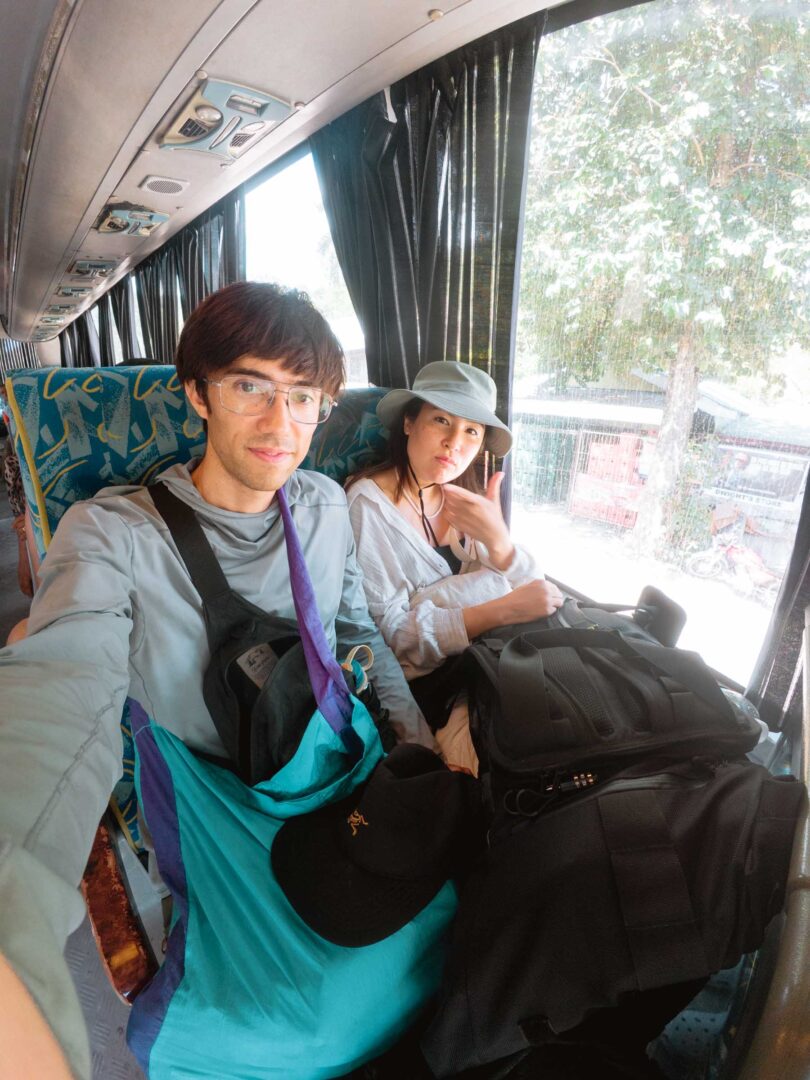Inambakan Falls is easily one of the top three waterfalls to visit in Cebu.
But while most people only visit Inambakan’s main waterfall, there’s a lot more to it than meets the eye.
Hidden behind the main falls is an entire canyon system with four more waterfalls. Each waterfall is an adventure in itself, with caves, cliff jumps, and milky blue pools of water. It’s an insane place for exploration.
In this guide, I’ll share everything you need to know before visiting Inambakan Falls, including how to get there and what to expect, to uncovering its hidden waterfalls for the ultimate adventure.
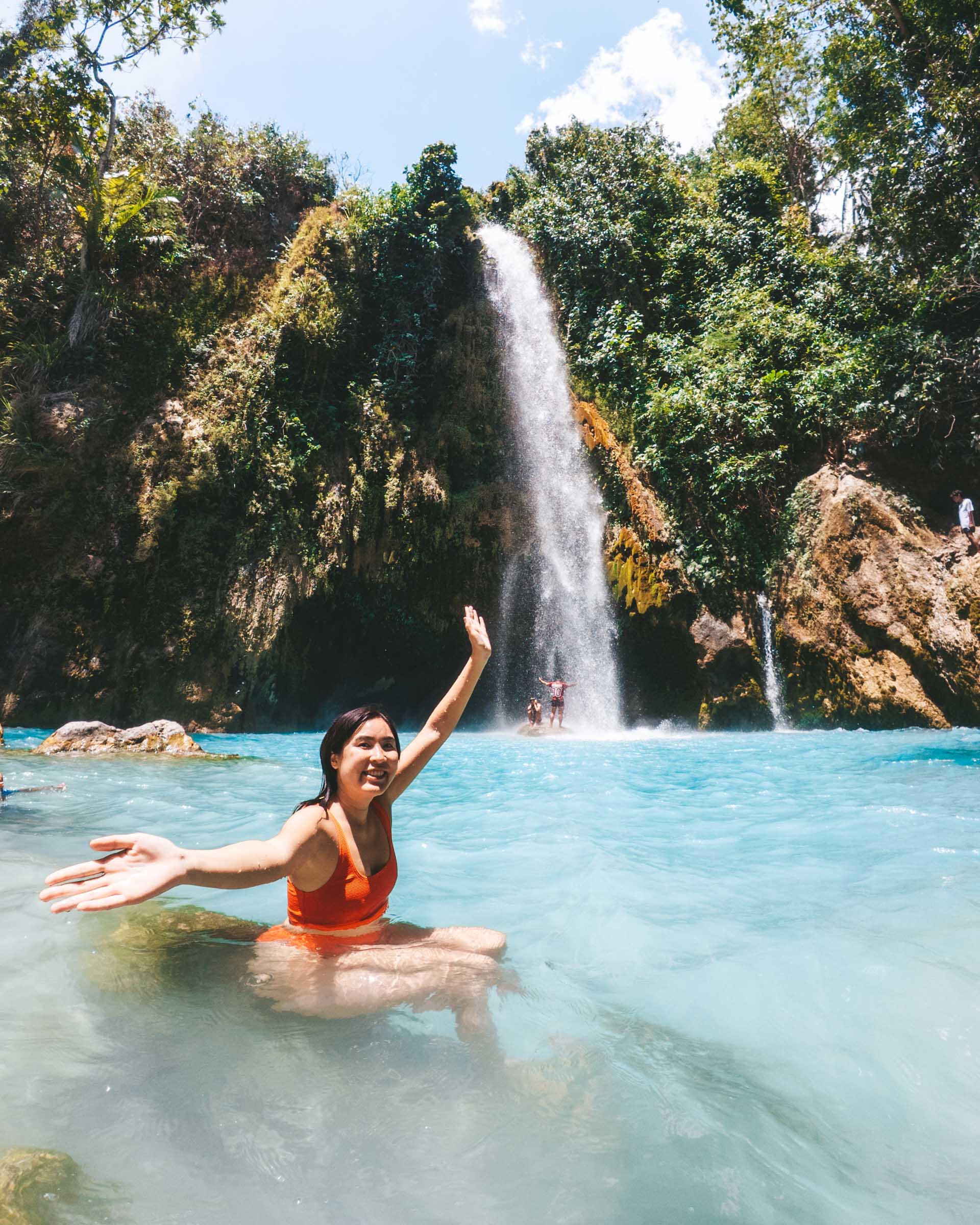
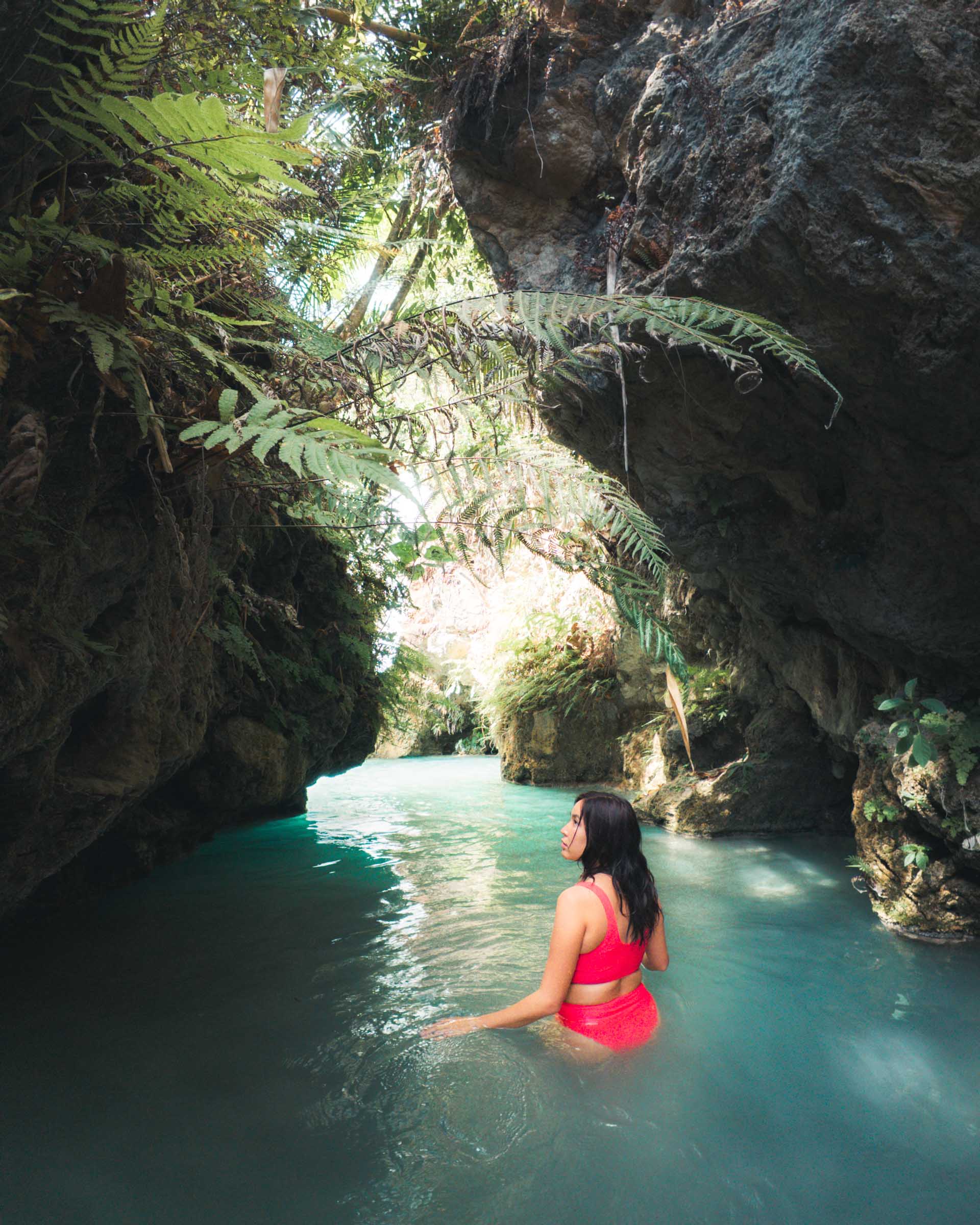
Inambakan Falls Complete Guide
Inambakan Falls is a massive, powerful waterfall in the forests of Ginatilan, Cebu. Water plunges from 100 feet high into a large, milky blue basin, with a few scattered boulders, one where you can stand directly under the falls. It’s an otherworldly spot—and because of that, it’s become a popular attraction.
Towering at 100 feet, its Inambakan Falls flows year-round—even during the dry season. At the base of the falls, a partially submerged boulder lets you stand beneath the roaring water for an epic shower.
But what most visitors don’t realize is that Inambakan Falls is just the beginning.
Hidden behind the main waterfall are four more waterfalls, each with its own unique adventure.
Two of the hidden waterfalls have cliff jumps, and one hides a secret cave.
But the final hidden waterfall is a true hidden gem. A narrow limestone gorge leads to the falls, where you wade through the signature milky blue Cebu water. That last waterfall alone makes the trip more than worth it, and in my opinion it’s more epic than the main falls itself.
Technically, the trail behind Inambakan Falls is closed to the public. But with a local guide, you might just get the chance to explore these hidden waterfalls for a canyoneering adventure. That’s what we did.

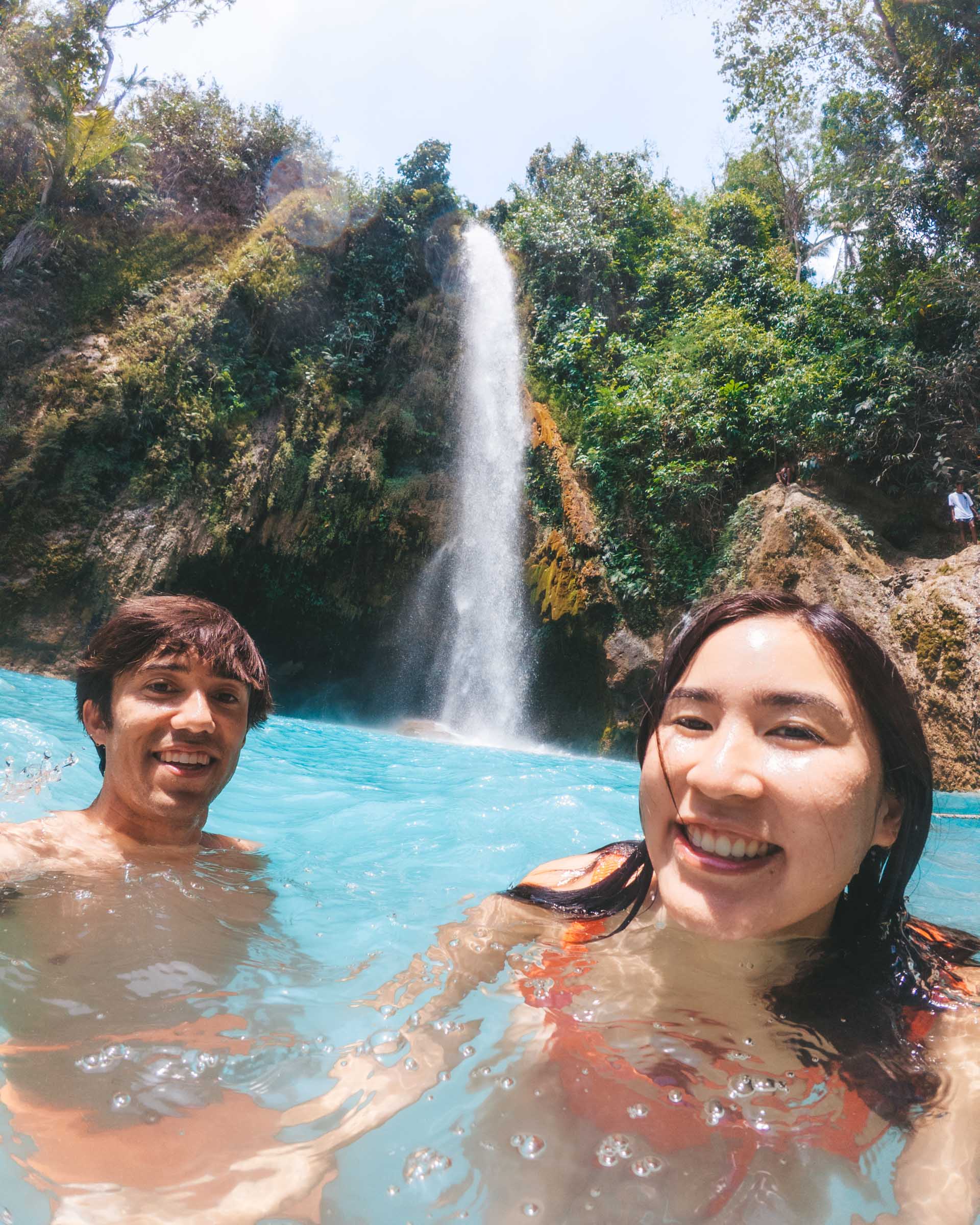
How to get to Inambakan Falls
The journey to Inambakan Falls is a long one. We rode a motorbike, and it took us about 1 hour and 45 minutes to get there from Moalboal.
We usually take it slow, but even at a faster pace, it’s hard to imagine making the trip in less than an hour unless you’re really gassing it.
The map below for Inambakan Falls is accurate and can be used to navigate there.
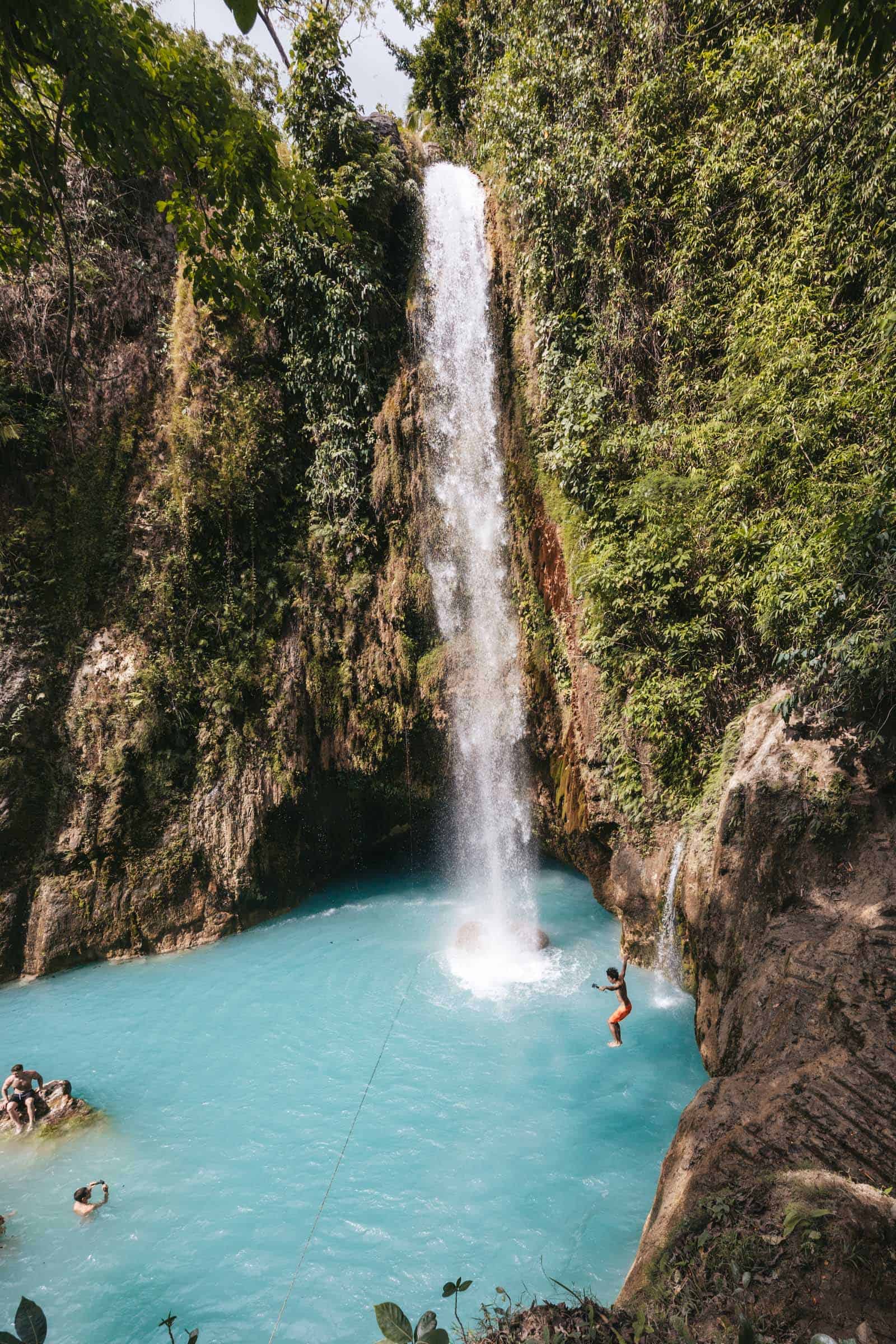
Inambakan Falls: Our Experience
When we pulled up to the entrance of Inambakan Falls, I was a little confused. Instead of a roaring waterfall, we found a large parking lot and a small building with tables. No sight or sound of rushing water—just a quiet entrance.
We were greeted by our tour guide, who we’ll call Arjay since I don’t want to reveal their true identity, turned out to be our guide for the day. Normally, we prefer to explore on our own, and if we were just visiting the main falls, a guide wouldn’t have been necessary.
But then our guide told us something that changed everything.
There were more waterfalls hidden in the hills, and he could take us to them.
Now, that got my attention.
We hit the trail, passing by the main waterfall first. We took a few pictures, but Arjay assured us we’d be ending our adventure here, so we could swim later.
For now, it was time to explore.
The Hidden Waterfalls of Inambakan
We climbed a steep trail behind the waterfall, a mix of dirt paths and staircases winding through the forest.
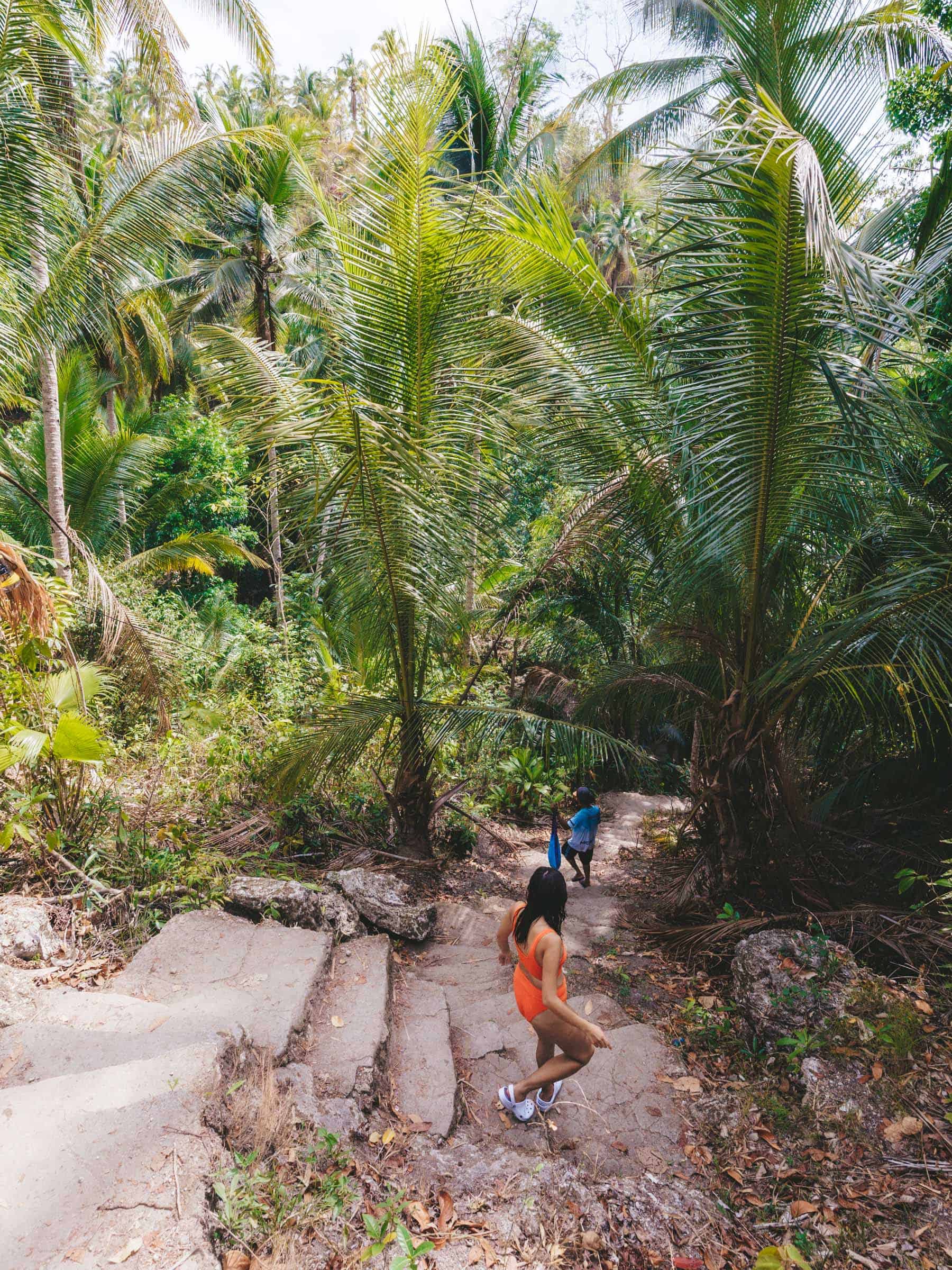
I’m not sure exactly how we ended up there, but after about 30 minutes of hiking, we were at the first hidden waterfall—a small but beautiful cascade plunging into a deep basin.
And this is where having a guide really mattered.
Arjay pointed to a specific spot in the basin and told us, “You can jump in, but you have to land there.”
If we jumped too far in any direction, we’d hit rocks. It wasn’t an insanely tight landing zone, but it was risky enough that without him, we could’ve been in trouble.
Following his instructions, we took the plunge. And just like that, we jumped right into our impromptu Inambakan canyoneering adventure.
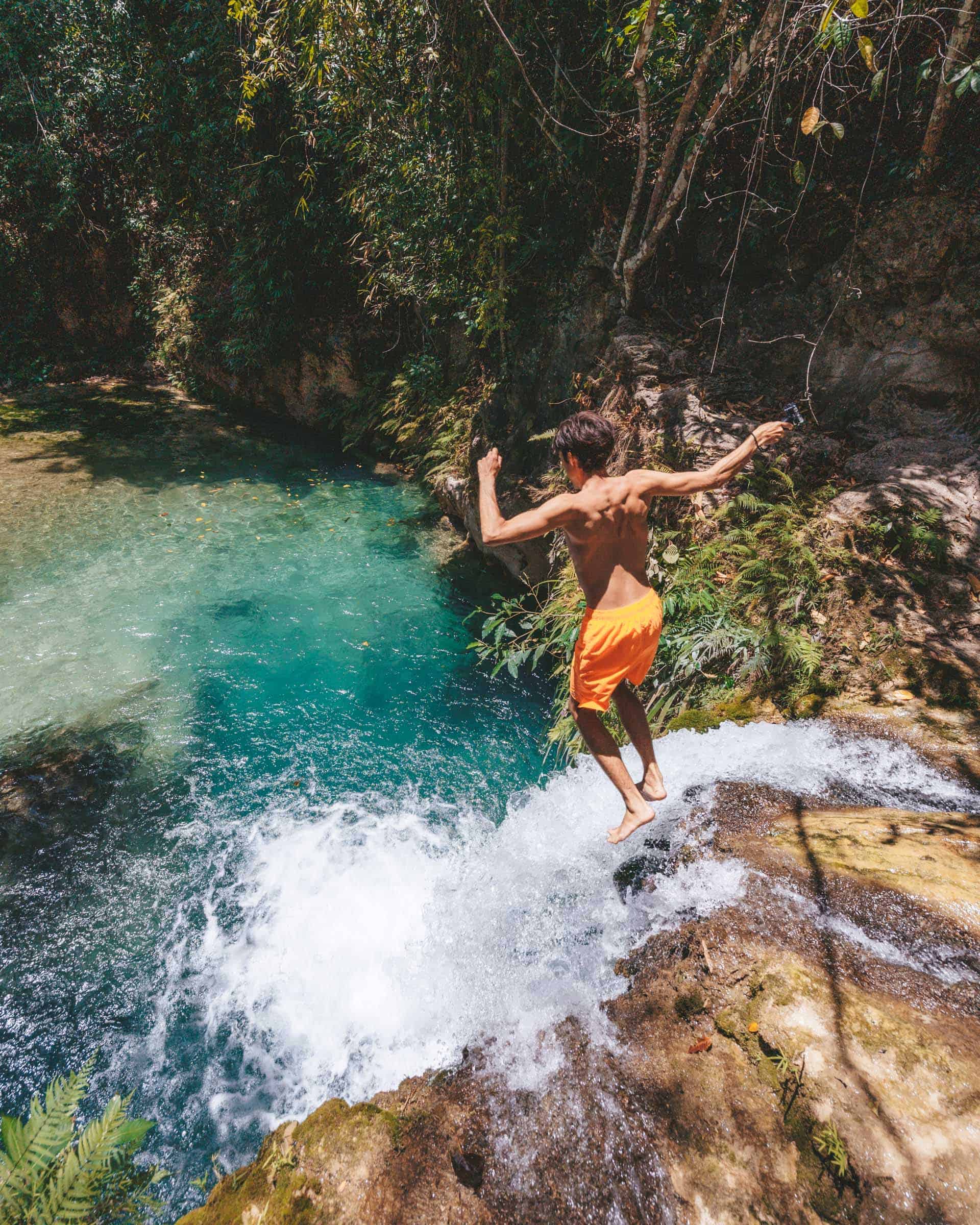
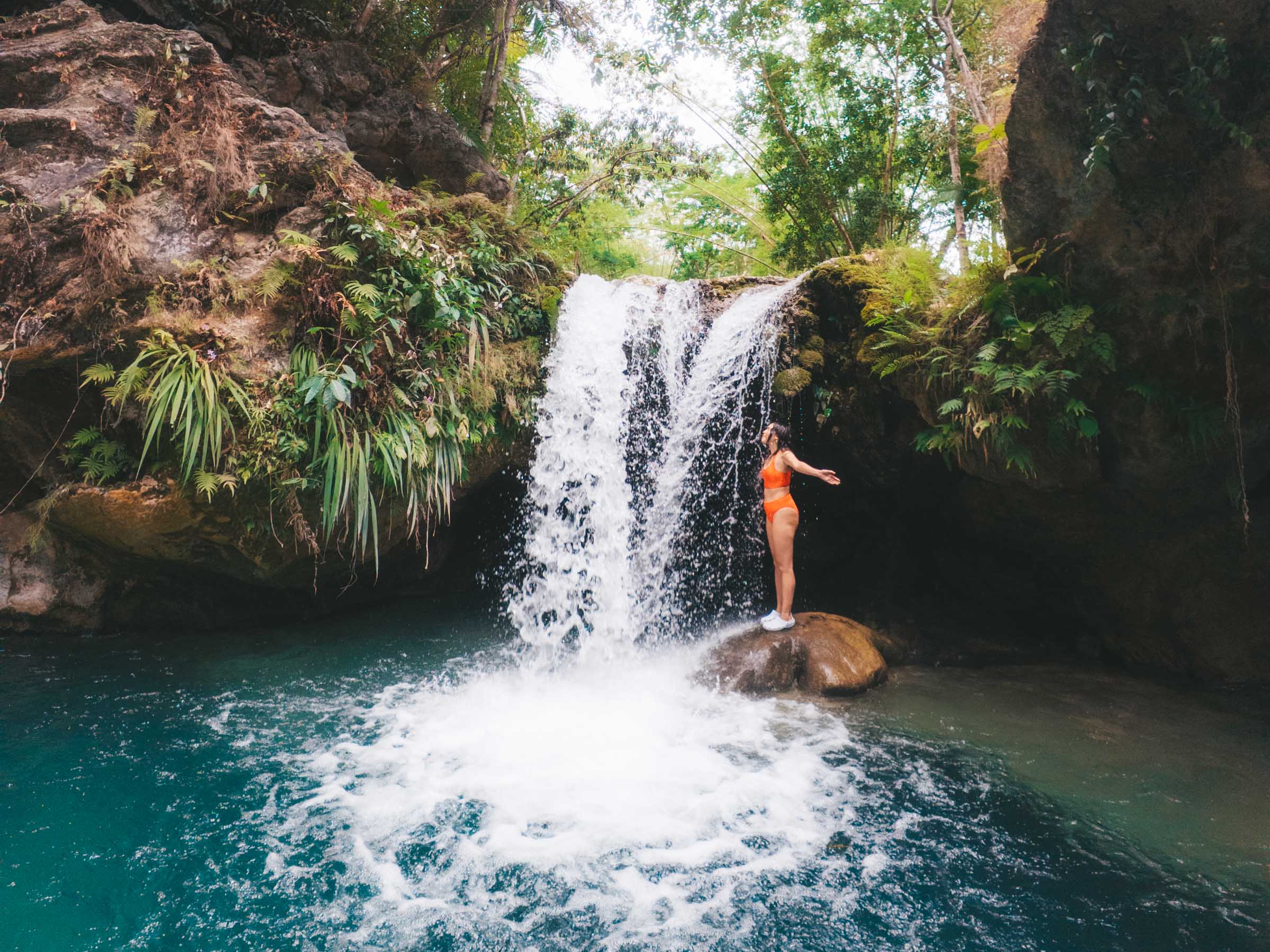
But, of course, it wouldn’t be a waterfall in the Philippines if it didn’t have at least one surprise.
Behind the falls, initially hidden from view, was a cave. We swam underneath the rushing water and into the little cavern, where we stood, in slight disbelief at the adventure we just embarked on.

As we climbed out, a group of local kids arrived. Fearless. They took turns launching off the falls without hesitation, landing perfectly every time.
We didn’t know it yet, but this would be the theme of the day—every time we jumped, a local boy was right behind us to do an even bigger jump. As it usually goes in the Philippines.

More waterfalls, more surprises
The second waterfall was smaller, but it had a natural sitting area at the top, where Chloe relaxed in the current as the water flowed around her. I thought it was cute that she managed to find her peaceful little spot in the middle of all the action.

But when it came time to jump, I hesitated for a second. Arjay reassured me, pointing out exactly where to land. Once again, flawless advice from our guide, and once again, a local boy effortlessly jumped in right behind me.
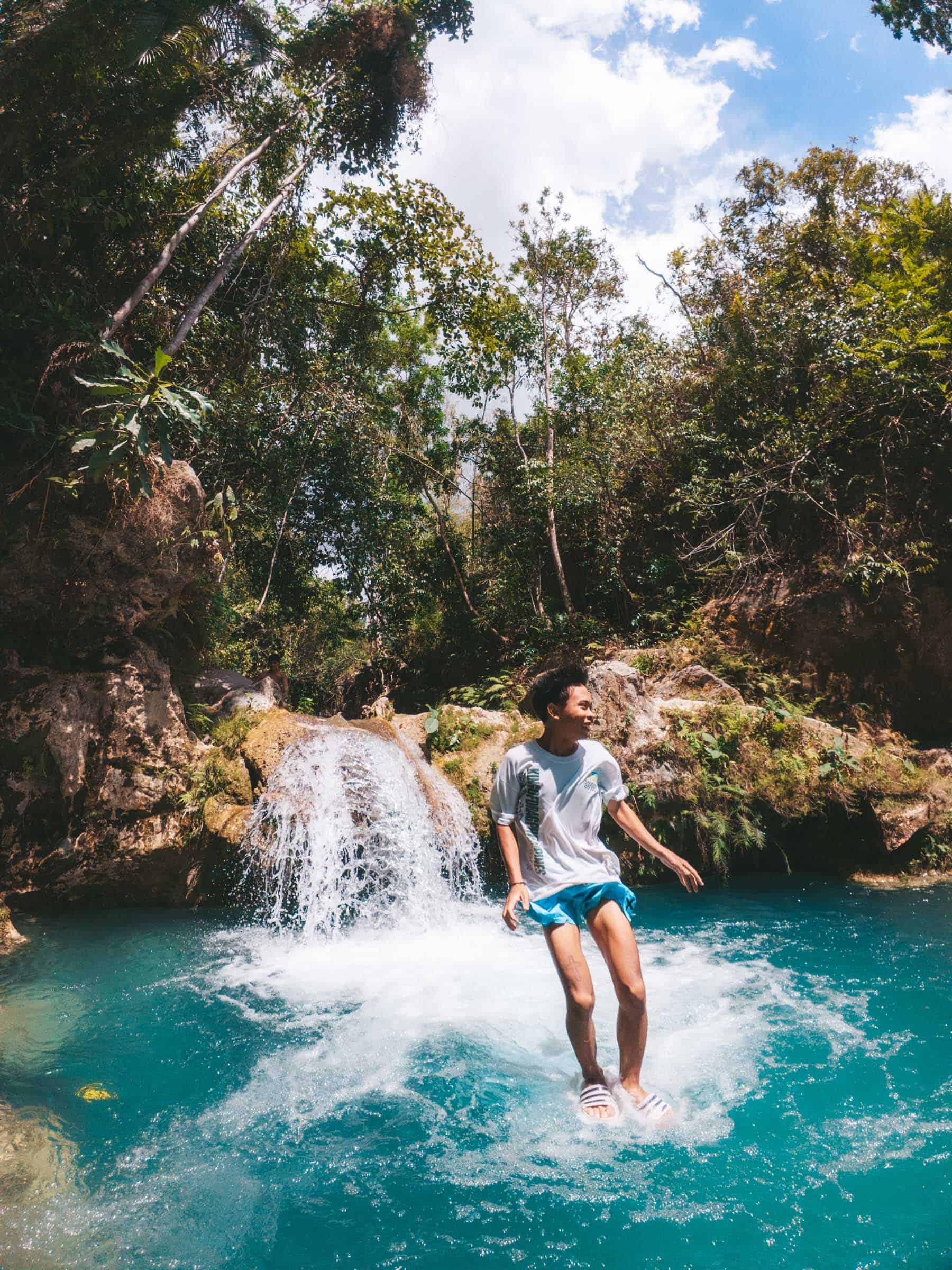
The third waterfall didn’t have much of a jump. It had something even better.
When we first walked up, some local kids were already playing in the water. At first, I thought we were interrupting their fun, but one of them eagerly waved me over. As I swam towards him, he disappeared into the waterfall. Where did he go?

A few seconds later, he popped back out and motioned for me to follow.
I swam forward, feeling the full force of the waterfall pounding down on my head. As I struggled against the current, the boy grabbed my arm and pulled me into the cave. Inside, it was a tiny, hidden space, completely enclosed behind the waterfall. Something I would have never found myself.
I told him that this cave was perfect for two people. He said you can fit three!
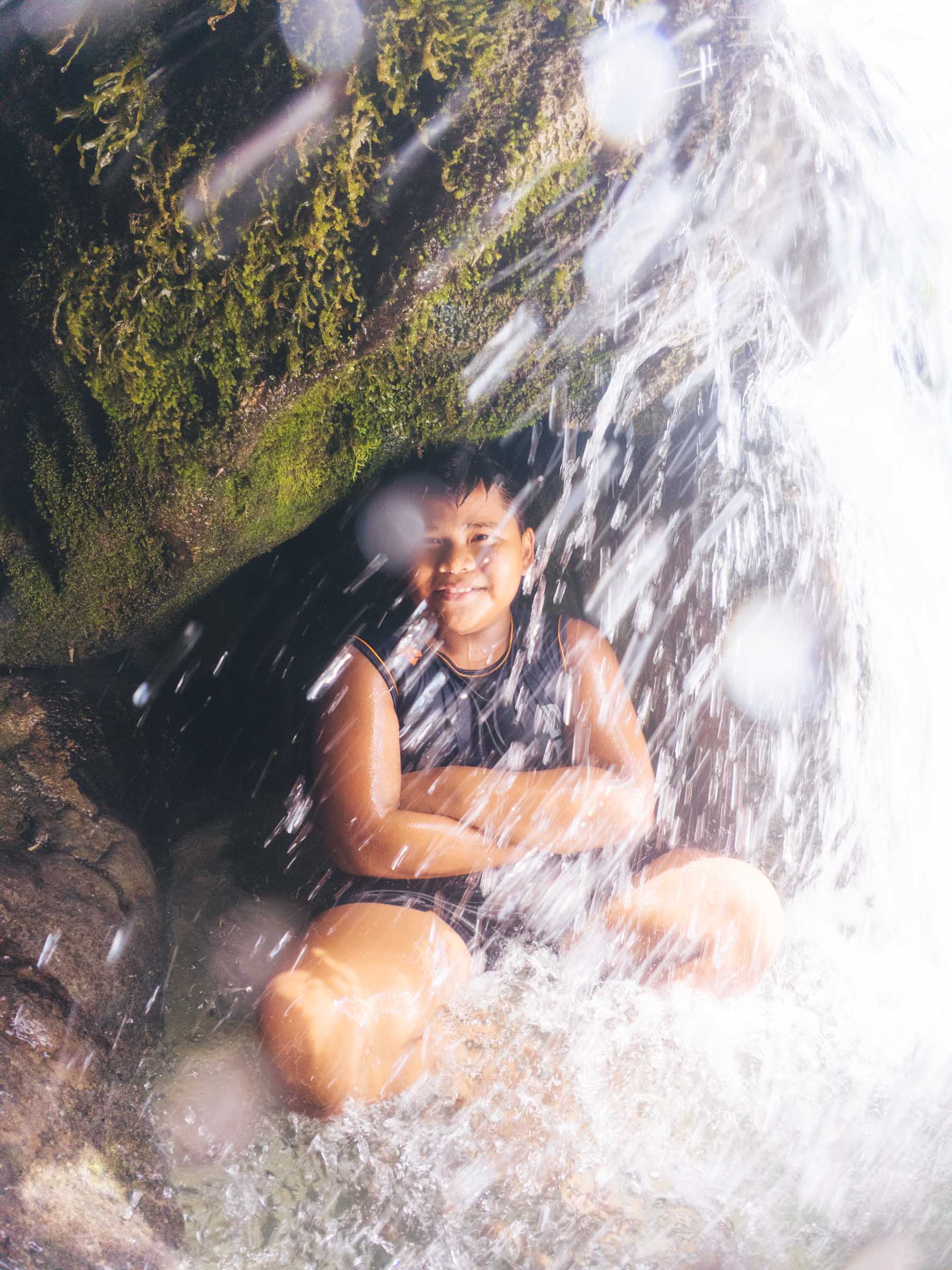
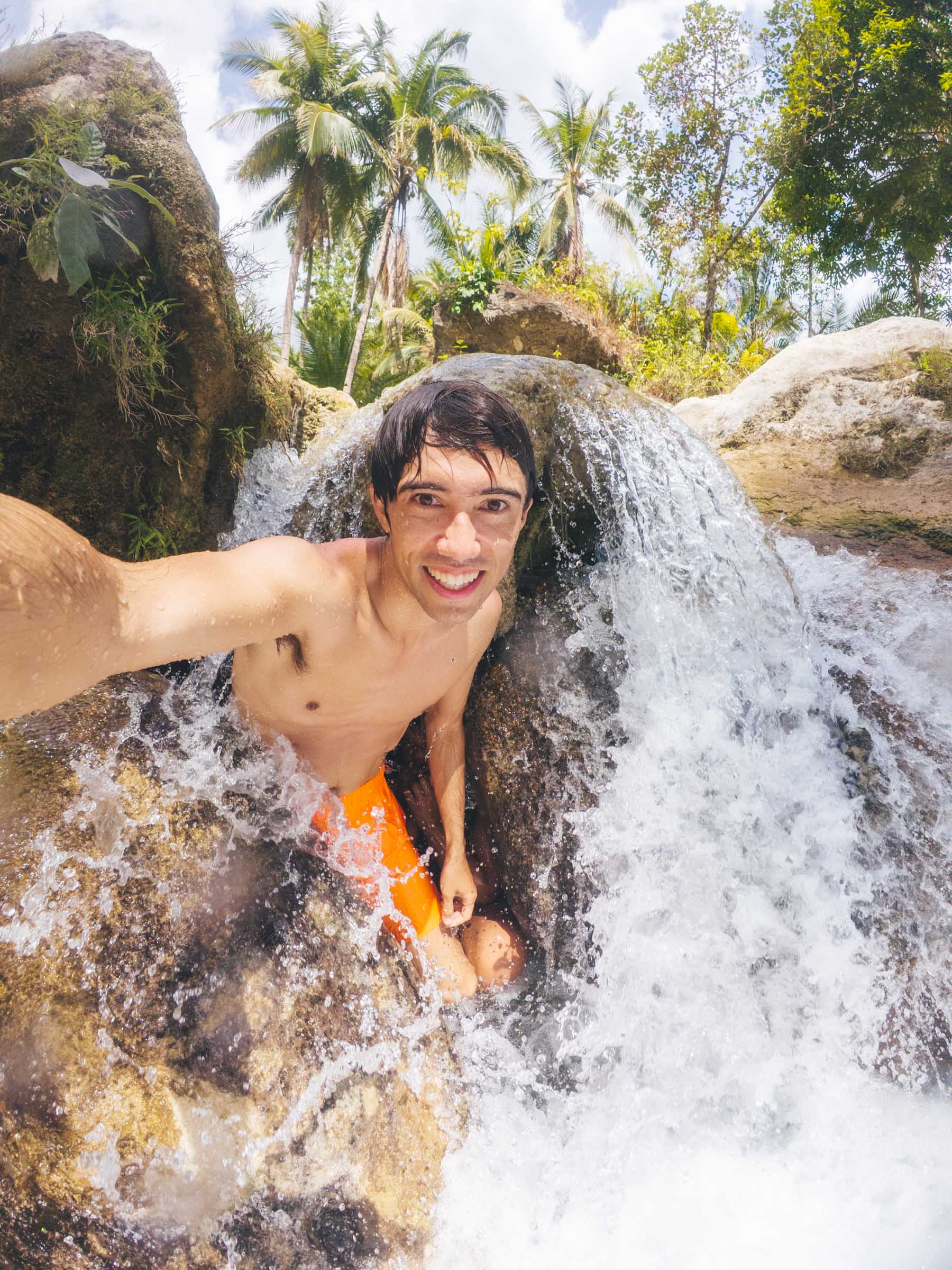
A bit downstream, we reached the final hidden waterfall, and they definitely saved the best for last. Getting to this waterfall was one of the most memorable mini-adventures I’ve ever had.
We waded through waist-deep water and entered a narrow gorge. As we went through the gorge, towering limestone walls rose around us. Trees and ferns grew off the sides of the limestone walls, and roots draped down from above. The whole setting was like stepping into a lost world.

We emerged from the gorge to the last hidden waterfall. It flowed down a sloping rock face into the river. Oddly enough, it reminded me of a mini Yudaki Falls in Japan.
I climbed up onto the rock and let the flow of the water pound against my back. Looking back, the climb was a bit sketchy, but the feeling of being inside the falls is something I won’t forget.
With that, our canyoneering adventure was over, and as we hiked back to the main falls, I found myself thinking: How are we supposed to top that?


Back to Inambakan Falls
Even though we had just experienced some of the most epic hidden waterfalls, the main Inambakan Falls were still impressive. Water gushed over the cliffside, crashing into a deep, blue basin below.
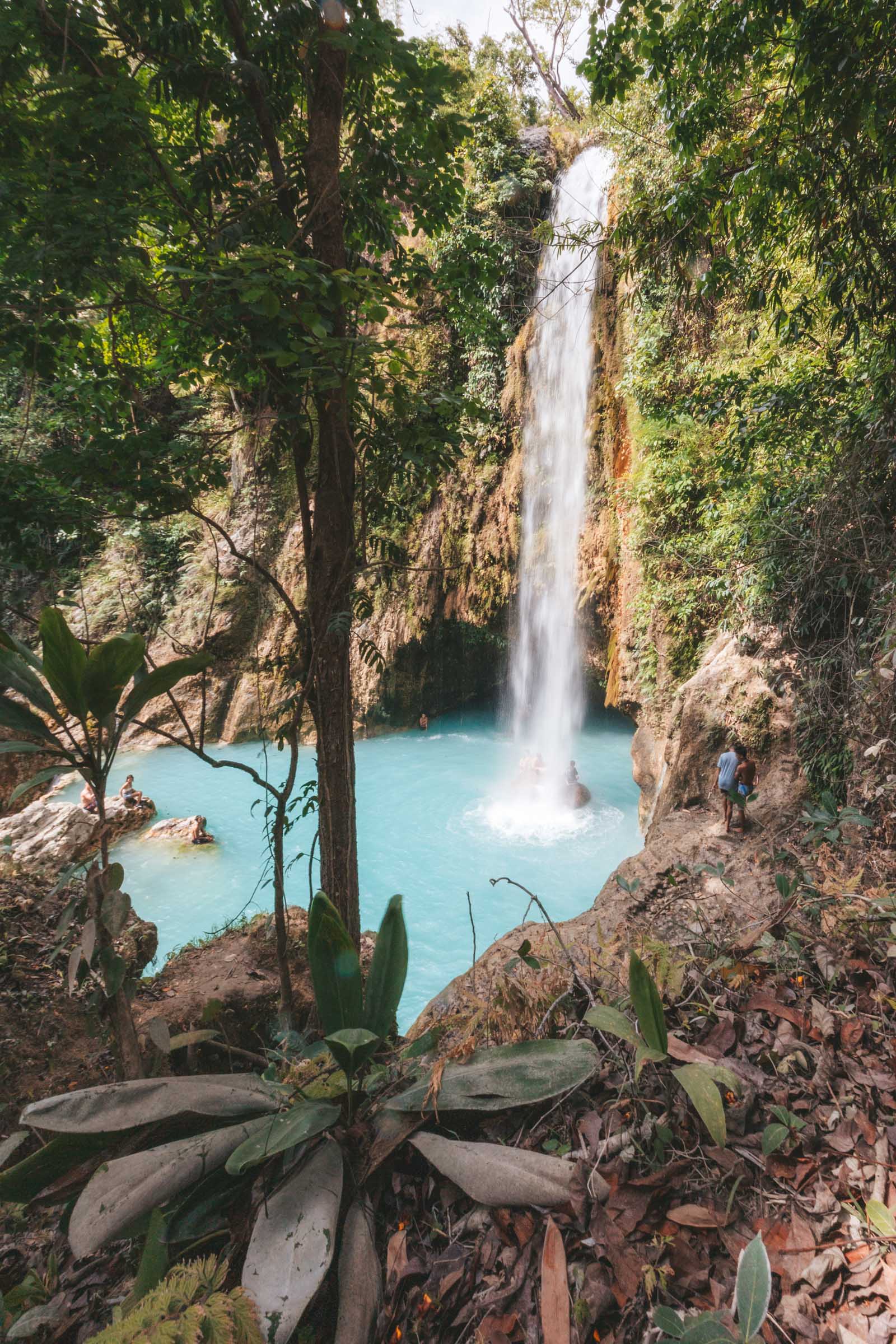
By now, a crowd had gathered at Inambakan Falls. People were swimming, taking photos, and jumping in. Just having a good time all around.
I spotted a few people jumping from the right side of the falls, so I decided to join in. It was about a 4-meter jump, easy and fun enough!


After swimming at the main falls, Arjay had one last surprise for us. We followed a path down to an entirely different section below the main waterfall.
This spot had a completely different vibe. In the middle of the pool was a rope swing where locals were taking turns arcing themselves into the water. It was more of a place to chill and hang out, and of course, watch your buddies do some cool flips from the swing.
I wish I could say I pulled off some cool tricks, but I didn’t. I just had to focus on not belly-flopping. The swing hung low, so I had to pull my legs up just before splashing down. Of course, the locals made it look effortless.
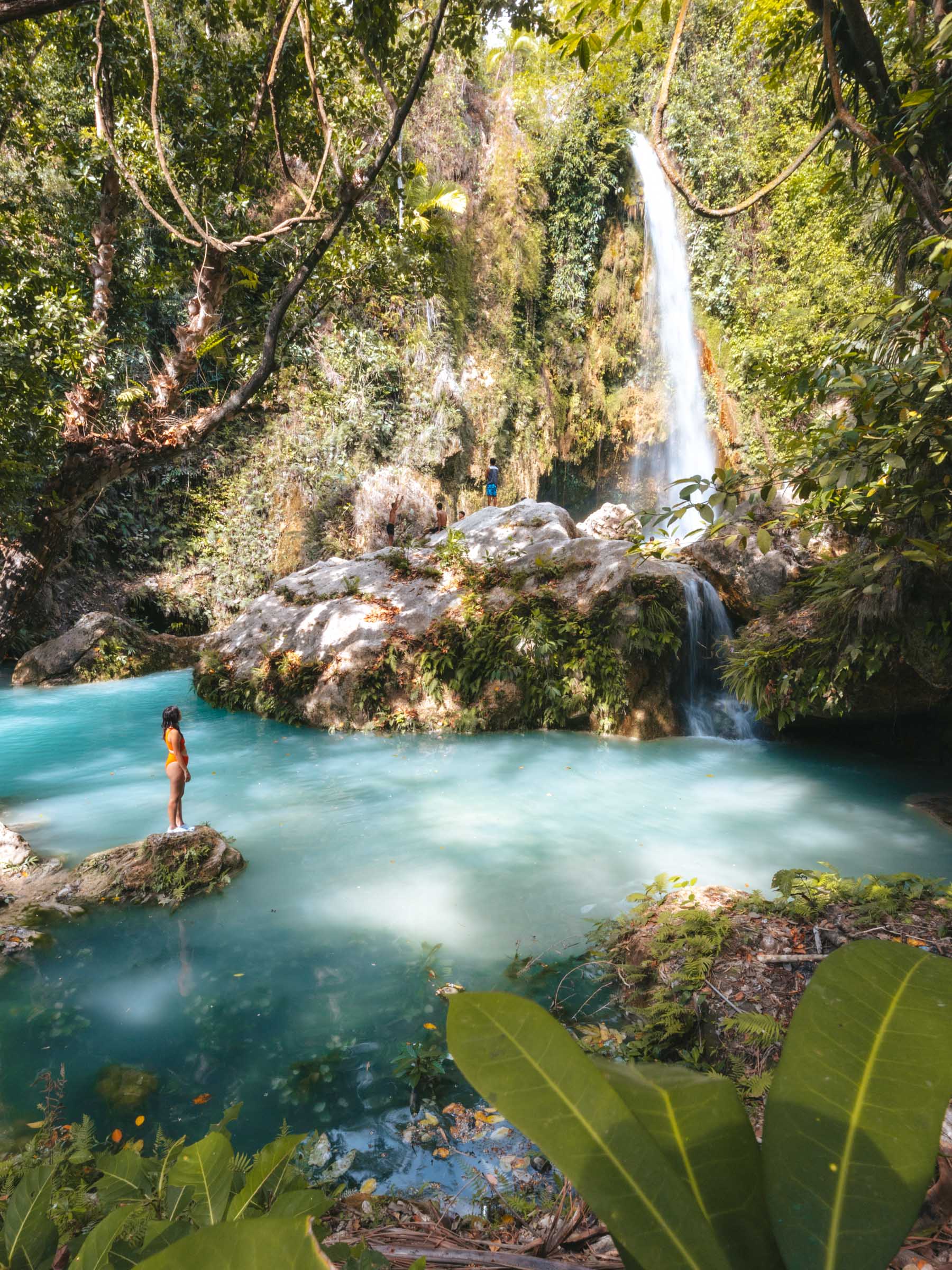

Inambakan Falls Photos
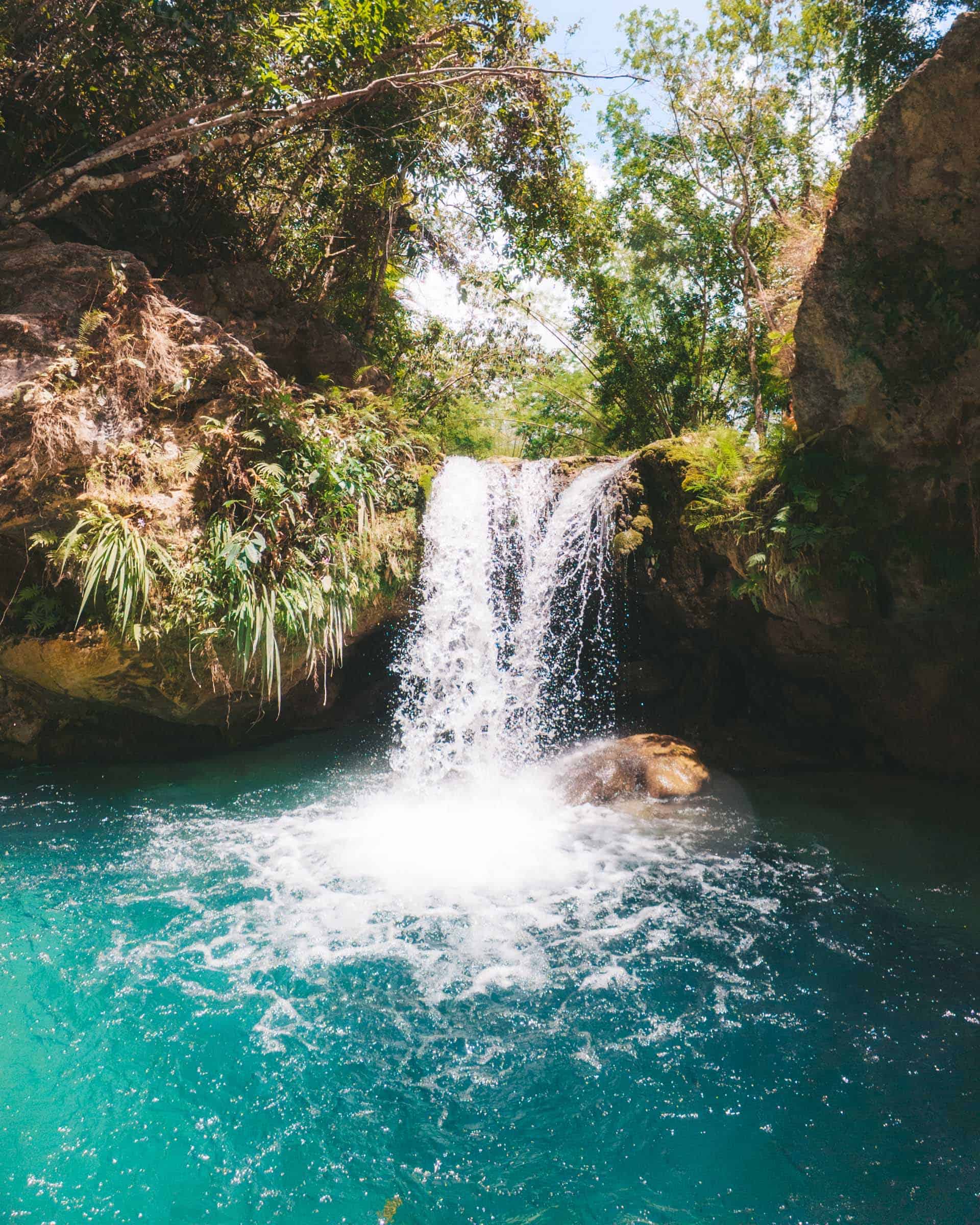
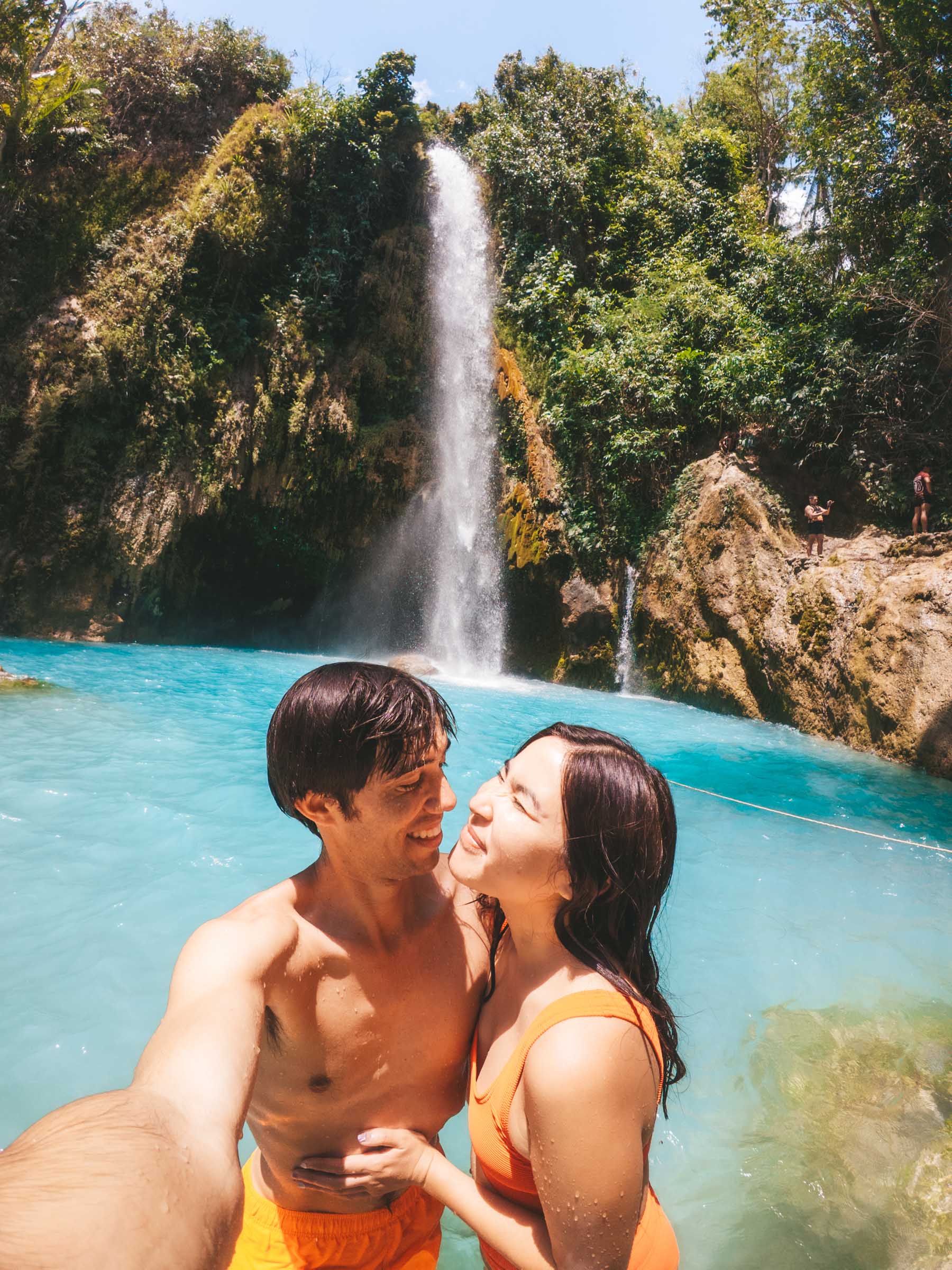
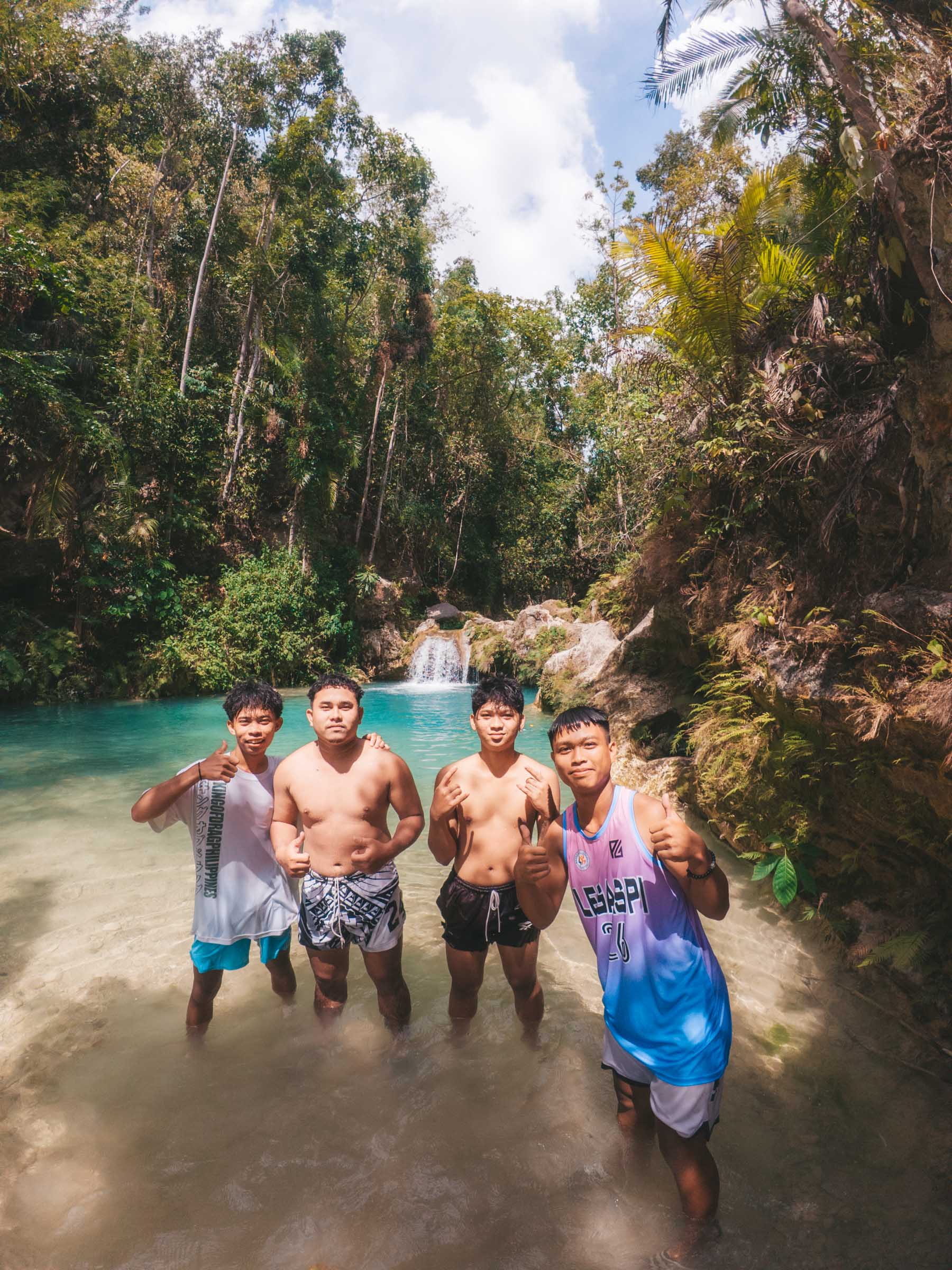
Where to Stay in Cebu
For most travelers, Moalboal is the best place to stay. It’s close to the Sardine Run, White Beach, and within range of Kawasan Falls Canyoneering.
Moalboal has a good mix of resorts, hostels, and food spots, making it a solid base for exploring Cebu.
If you’re planning to stay longer than 5 days, I recommend doing what we did by splitting your time between Moalboal and Oslob.
Oslob gives you easier access to whale shark watching, Sumilon Island, and nearby waterfalls like Tumalog and Binalayan. This way, you cut down on travel time and get to see more.
Here’s where we stayed at and recommend in Cebu:
- Moalboal: 3 Sisters Guest House 2 is just off the main strip in Moalboal, but still within walking distance of everything. We appreciated the security and cleanliness of the accommodation and ate breakfast there every morning of our stay.
- Oslob: Melronz Inn is situated a bit outside the town center, making it quieter and more relaxed. And the best part is that it’s located right on the water, with its own private ocean access.
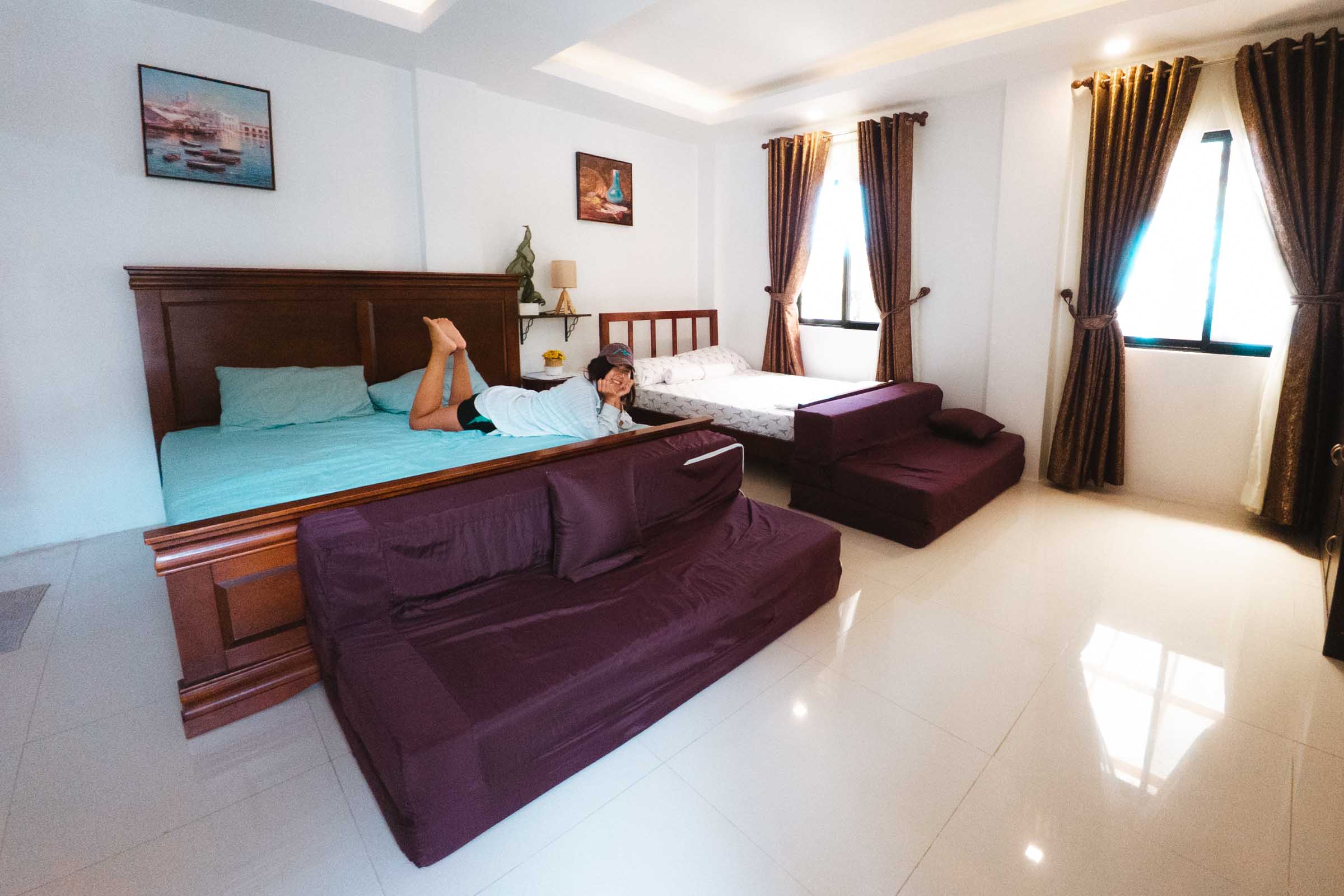
What to Pack for Cebu
- Water Shoes: If you plan to go canyoneering, a solid pair of water shoes like these are needed. If not, you can always wear crocs or even your sneakers if you don’t mind them getting wet!
- Snorkel: With sardine run in Moalboal and whale shark watching in Oslob, it helps to have your own snorkel set like this one for the best experience! Plus, you won’t need to worry about renting a snorkel, which may be of… questionable quality.
- Sunscreen: For some reason, sunscreen is expensive in the Philippines and I’ve even encountered places selling fake sunscreen that doesn’t work! So I recommend bringing your own sunscreen to Cebu.
- Dry Bag: With all the sand, salt, and water flying everywhere during our adventures, I was so glad to have a dry bag to keep all my things safe from the elements!
- Travel Towel: In my opinion, a travel towel like this one is super necessary for a trip to Cebu! It packs down nicely and was there for me anytime I went swimming, or just needed to brush sand or dirt off.
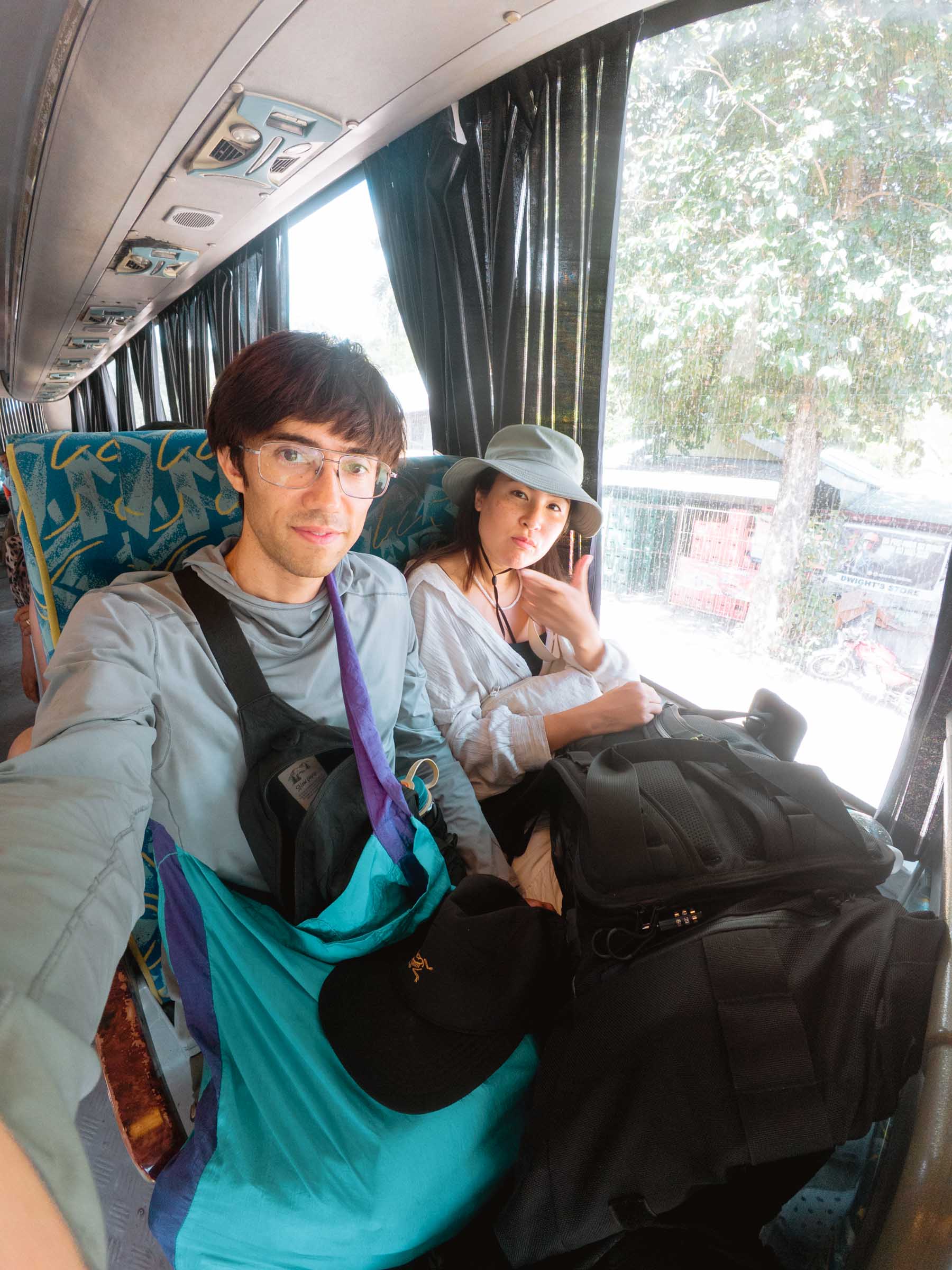
Our Free Cebu Google Maps Locations
Want a free map of all of the locations mentioned in this post? Sign up in the box below and we’ll deliver one right to your inbox, plus our top tips to help you plan your Cebu trip!
Need more Cebu travel ideas?
During our 7-day adventure in Cebu, we found some of the island’s most stunning natural wonders—milky blue waterfalls, limestone hikes, and incredible snorkeling spots. To help fellow adventurers, we’ve put together guides to the best places we found. You can check them out by clicking the links below.
- Start your planning here: Cebu Travel Guide
- Our Ultimate Guide to Cebu: 15 Incredible Things to Do in Cebu
- How to plan your Cebu vacation: Cebu 3 Day Itinerary
- Our Moalboal accommodation guide: Where to Stay in Moalboal
- Our favorite waterfall (+ secret adventure) in Cebu: Inambakan Falls
- Hike to the highest point in Cebu: Osmeña Peak
- Our favorite hike in Cebu: Casino Peak
- Our favorite day tour in Cebu: Kawasan Falls Canyoneering
- The hottest hot spring we’ve ever visited: Mainit Hot Spring
- How to see the Moalboal Sardine Run without a tour
- Oslob Whale Shark Watching Complete Guide
- How to get from Cebu City to Moalboal
- How to get from Moalboal to Oslob
- How to rent a motorbike in the Philippines
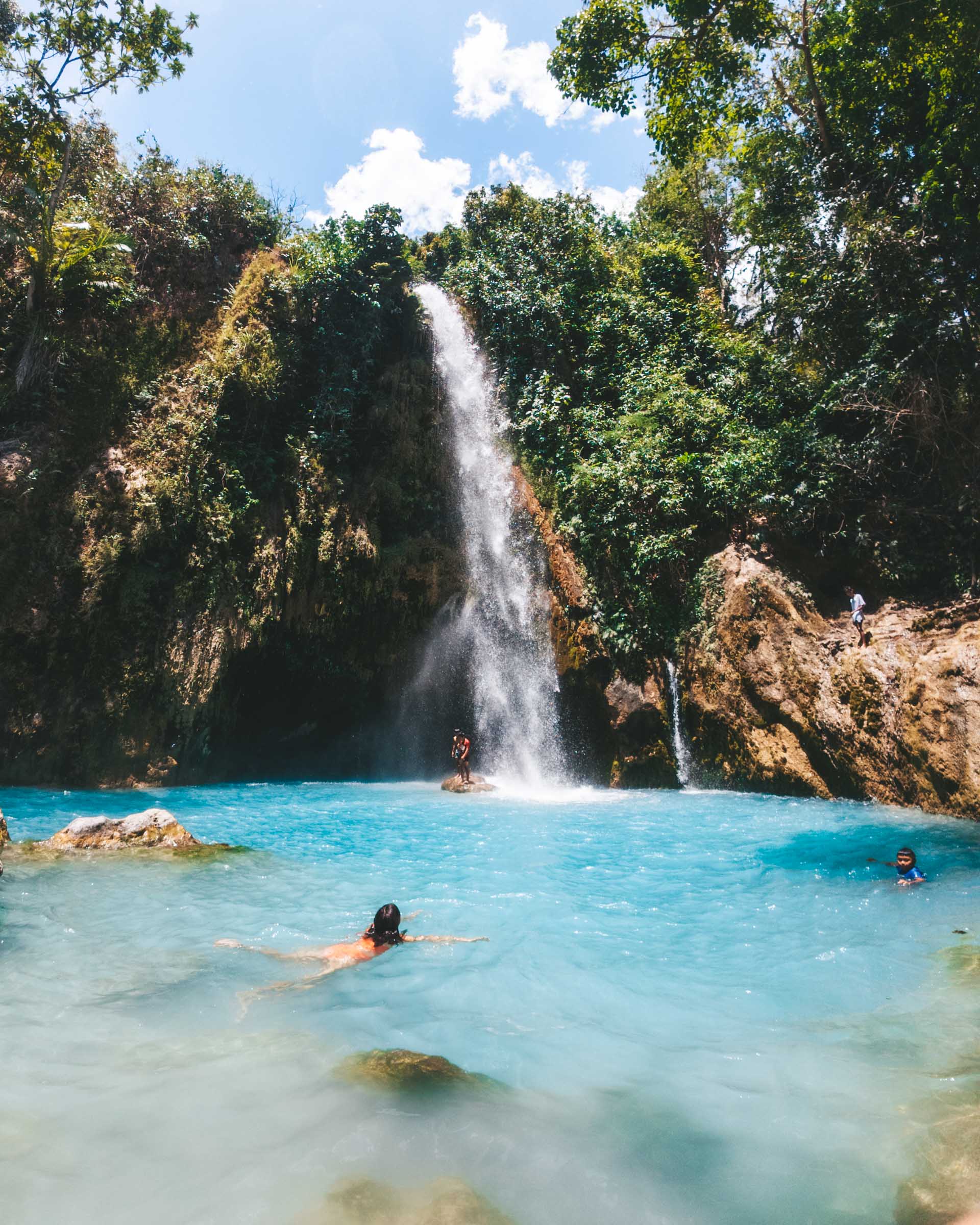
I hope you enjoyed our guide to Inambakan Falls in Cebu. Feel free to leave a comment below if you have any questions 🐸

